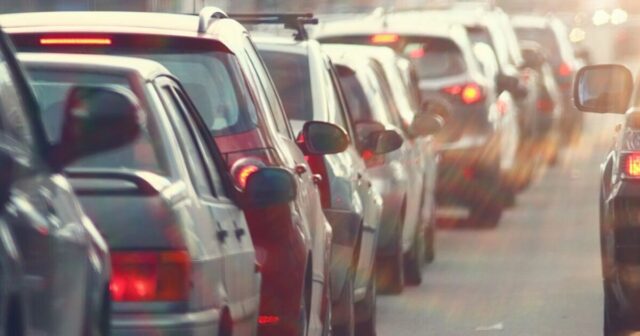Petrol and diesel owners will “face notably higher” annual car tax fees due to major Vehicle Excise Duty (VED) changes coming into effect in weeks.
Andy Wood, spokesperson for Tax Natives, has warned motorists will be forced to “allocate additional funds” to use the roads from next month.
Motorists have to legally tax their cars every year to avoid fines with VED rates calculated based on vehicle emissions.
Electric car owners are still exempt from charges until April 2025 but petrol and diesel owners have to pay yearly fees.
VED rates increase annually with experts at Pete Barden recently guessing fees would rise by around six percent in 2024.
The move will see traditional internal combustion vehicle owners pay out more depending on what band their vehicle fits in.
Outlining the new rules for motorists, Andy said: “The impending rise in Vehicle Excise Duty (VED) rates will substantially impact drivers of petrol, diesel, and hybrid vehicles across the UK.
“Starting April 1, these drivers may face notably higher annual expenses in line with the Retail Price Index (RPI) inflation.
“This means that individuals relying on traditional fuel types may need to allocate additional funds to their vehicle taxes, potentially amounting to hundreds of pounds.
“Vehicle taxation costs vary based on age and environmental impact. Cars registered after April 1, 2017, will face a £10 increase. For newer vehicles emitting over 255 g/km, first-year tax rises by £140 to a total of £2,745.
“Those choosing models with higher pollution levels incur more substantial tax obligations, aligning with governmental efforts to promote sustainability in the automotive sector.
“Those registered after March 1, 2001, are categorised by pollution levels. Top Band M incurs a £40 hike, from £695 to £735 annually. Band L sees a £35 increase, while K and J rise by £20 each.”
HM Revenue and Customs (HMRC) claims the increase in VED rates is in line with RPI meaning rates will “remain unchanged in real terms” for motorists.
They stressed the move would ensure motorists make a “fair contribution to the public finances”.
However, the officials did confirm they expected the move to have an “impact on motorists owning a car, van or motorcycle”.





